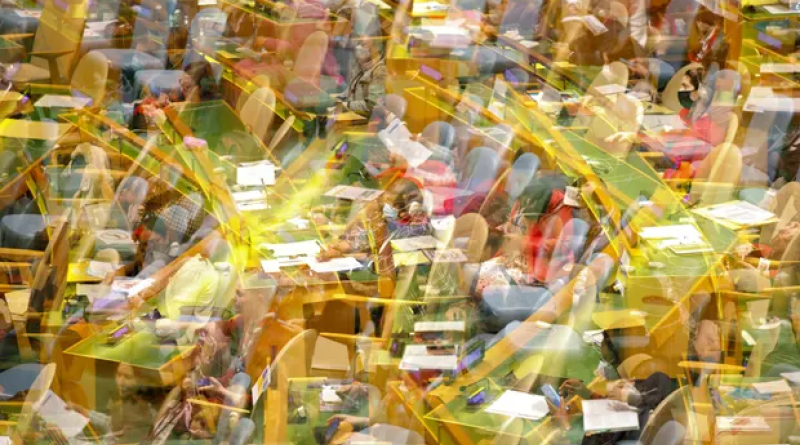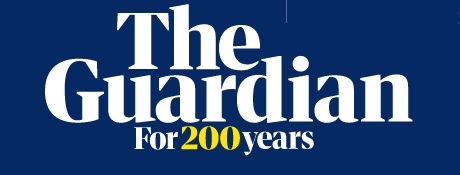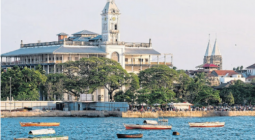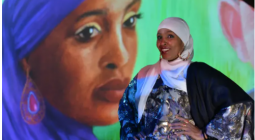Virtual conferences exclude most African women – how can we be heard?

At the UN headquarters in New York, ministers, activists, feminists and advocates are meeting to discuss gender equality and women’s rights. But the annual Commission on the Status of Women (CSW) – the UN’s biggest global gathering to discuss these issues – is an event African women and girls struggle to attend and participate in.
If it is not visa denials (this year saw little or no attempt from embassies to help facilitate visas to the US), it’s the lack of adequate resources to fly to New York and stay for the meetings; if it’s not language problems, then it is the minimal time and space granted to deliberate our unique issues.
When you stand on an international podium and you are not speaking the “climate language” of sustainable development and climate action, you are simply left out. How do I speak good English if I am having trouble interpreting critical information from my own language to the one that is globally acceptable?
Even during the Covid-19 pandemic, when the event was held virtually, African women were excluded because not all women can be in the digital space. In most African countries, the internet is so expensive. Between a choice of buying bread for their children or logging on to a one-hour meeting, what will women choose?
This is why this year we sought an alternative: African women have launched the first “Africa CSW”.
Last week, we convened 60 representatives from 18 African countries in Nairobi to hold concurrent meetings during the opening sessions of CSW66 in New York. We posted our discussions using #AfricaDisruptCSW66, which were then fed to our team, who are closely following the negotiations of an agreed set of conclusions expected to be signed on Friday.
My organisation, Femnet (the African Women’s Development and Communications Network), was created in response to the exclusion of women and girls from conferences affecting their lives. African women and girls need to be at the forefront of their own issues and we must claim and secure these spaces.
We are calling for the meaningful inclusion and participation of African women and girls, in all their diversity, in decision-making forums such as CSW and the UN climate change conference (Cop27) to be held in Egypt in November.
We’re also calling for the CSW venue to be rotated from New York to different regions of the world in the same way as Cop. This will open the CSW space and allow for more participation from indigenous communities, young people, women with disabilities, gender-nonconforming people, and women living in informal and rural areas.
Not only do African women need to be in these spaces, but we also need to hold our country representatives accountable for what they say and agree to at these conferences. What they say at conferences must represent our reality. If it’s not, we ought to challenge them.
We must never forget that we are fighting historical injustices. We are fighting for life; we are fighting to survive. We need to make sure no one can shut us down. Women’s and girls’ voices and lived experiences must be heard and prioritised.
Author: Memory Kachambwa
Photograph: Ryan Brown






